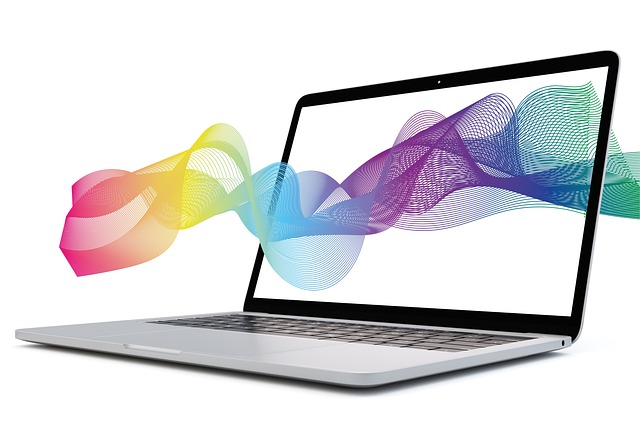In the evolving residential real estate market, AI home energy efficiency audit tools are transforming property evaluations by leveraging machine learning algorithms to analyze vast datasets. These tools provide insights into energy consumption patterns, areas for improvement, and potential cost savings, enabling professionals to serve clients better and promote eco-friendly practices. By integrating digital staging systems with AI audits, the industry offers immersive virtual tours, enhances marketing, and combines spatial analysis with energy data for insightful environmental performance assessments, further revolutionizing the sector through increased digital advancement and sustainability.
The intersection of artificial intelligence (AI) and residential real estate is revolutionizing the industry, with AI home energy audit tools leading the charge. As the global focus shifts towards sustainability, understanding and leveraging AI for energy efficiency becomes crucial. This article explores how AI digital staging systems can transform real estate by offering comprehensive energy audits, enabling informed decision-making, and enhancing property appeal through intelligent, data-driven strategies. Discover the benefits and future prospects of these cutting-edge tools.
- Understanding AI in Residential Real Estate: The Need for Energy Efficiency
- How AI Home Energy Audit Tools Can Transform the Market
- Implementing Digital Staging Systems: Benefits and Future Prospects
Understanding AI in Residential Real Estate: The Need for Energy Efficiency

In the evolving landscape of residential real estate, Artificial Intelligence (AI) is no longer a futuristic concept but an integral part of modern transactions. AI home energy efficiency audit tools are transforming how properties are evaluated and presented to potential buyers. These advanced systems leverage machine learning algorithms to analyze vast datasets, offering insights into a property’s energy consumption patterns, areas for improvement, and potential cost savings. By understanding the intricate relationship between AI and energy efficiency, real estate professionals can better serve their clients, ensuring both optimal living conditions and significant financial benefits.
Energy efficiency has become a paramount concern in today’s world, driven by environmental sustainability goals and rising utility costs. AI residential audit tools play a pivotal role in addressing these challenges. They enable comprehensive assessments of homes, identifying inefficiencies that might go unnoticed during traditional inspections. Through data-driven insights, these tools empower buyers and sellers to make informed decisions, foster sustainable living practices, and potentially reduce carbon footprints. By embracing AI, the real estate industry is not only staying competitive but also contributing to a greener future.
How AI Home Energy Audit Tools Can Transform the Market

The integration of AI home energy audit tools is poised to revolutionize the residential real estate market, offering a significant edge in sustainability and cost savings. These innovative technologies leverage advanced algorithms and data analytics to conduct comprehensive assessments of a property’s energy consumption patterns. By analyzing various factors such as insulation, HVAC systems, lighting, and appliances, AI-driven audits provide an unprecedented level of detail regarding energy efficiency. This enables real estate professionals and homeowners to make informed decisions about renovations or purchases, targeting areas for improvement that can lead to substantial long-term savings on utility bills.
Moreover, AI home energy audit tools play a pivotal role in promoting environmentally conscious practices. They contribute to the global effort to reduce carbon footprints by identifying potential sources of energy wastage and suggesting cost-effective solutions. As consumers become increasingly aware of sustainability, these tools cater to their desires for eco-friendly homes while appealing to investors seeking energy-efficient properties. This market shift not only benefits the environment but also creates new opportunities for real estate businesses to differentiate themselves through their commitment to green initiatives.
Implementing Digital Staging Systems: Benefits and Future Prospects

Implementing Digital Staging Systems offers a multitude of benefits for both real estate professionals and clients. By leveraging AI technologies, such as advanced imaging and computer vision, these systems provide an immersive and accurate representation of properties’ potential. They allow buyers to virtually “walk through” homes, appreciate layouts, and visualize design possibilities, enhancing the overall viewing experience. This technology also facilitates efficient property marketing, enabling agents to showcase listings in a more appealing and compelling manner.
Looking ahead, Digital Staging Systems are poised to integrate further with AI home energy efficiency audit tools. By combining spatial analysis with energy consumption data, these systems can offer insights into a property’s environmental performance. Such capabilities will not only assist buyers in making informed decisions but also contribute to the broader goal of promoting sustainable living and energy-efficient homes. This fusion of technology promises to revolutionize the residential real estate sector, making it more environmentally conscious and digitally advanced.
AI residential real estate digital staging systems, particularly AI home energy audit tools, offer a promising future for both industry professionals and consumers. By enhancing energy efficiency, these technologies can significantly reduce operational costs and environmental impact. Implementing digital staging systems not only benefits the market by providing immersive experiences but also paves the way for a more sustainable and intelligent real estate landscape. AI home energy audit tools, in particular, are game-changers that can transform how we approach residential energy consumption, making homes smarter and more eco-friendly.
